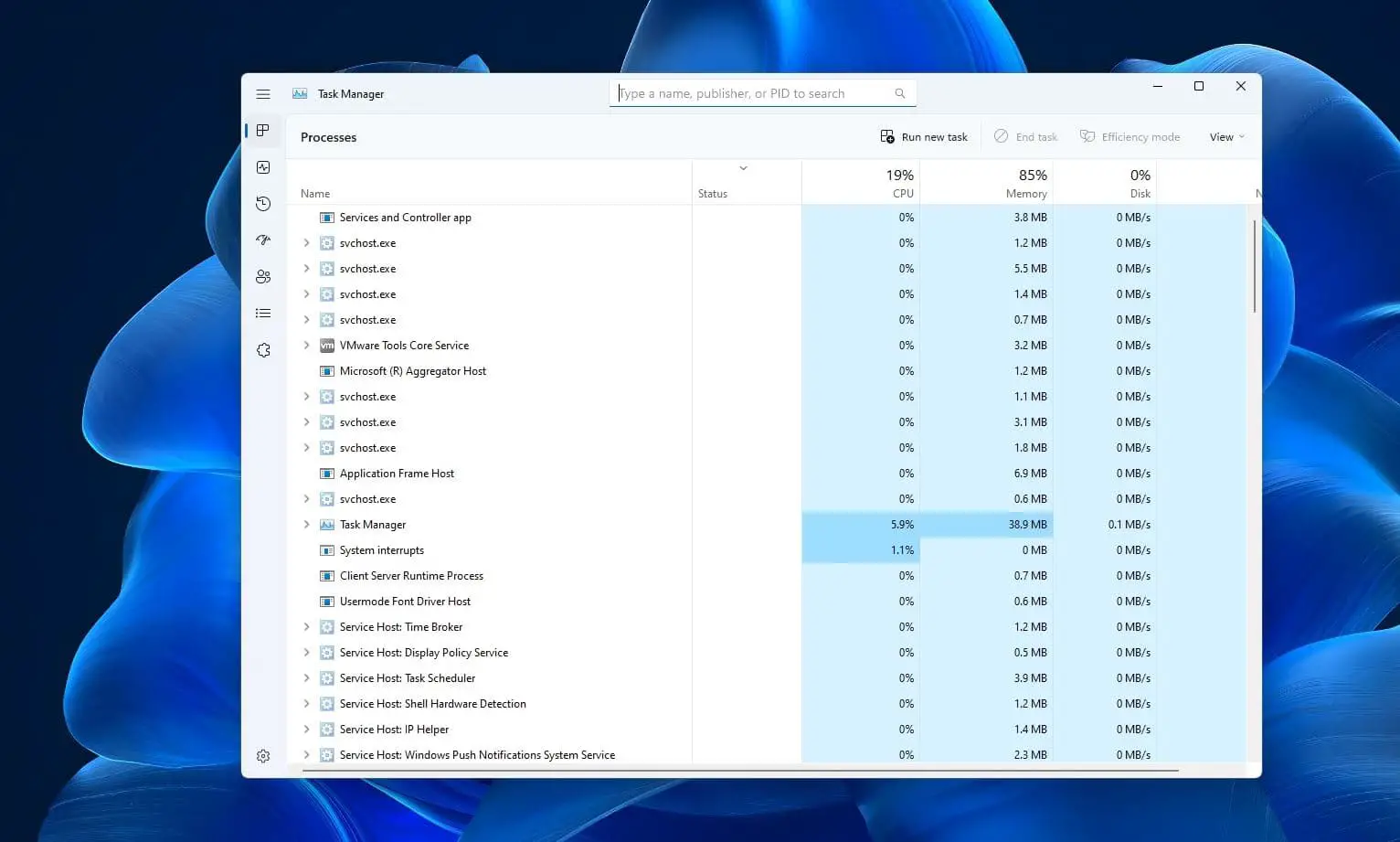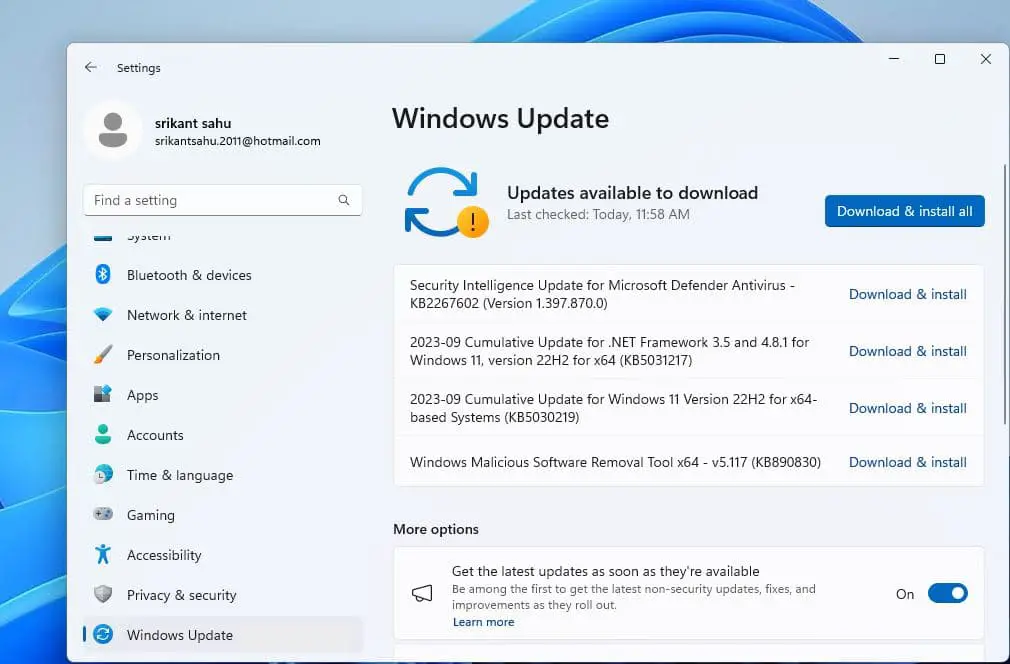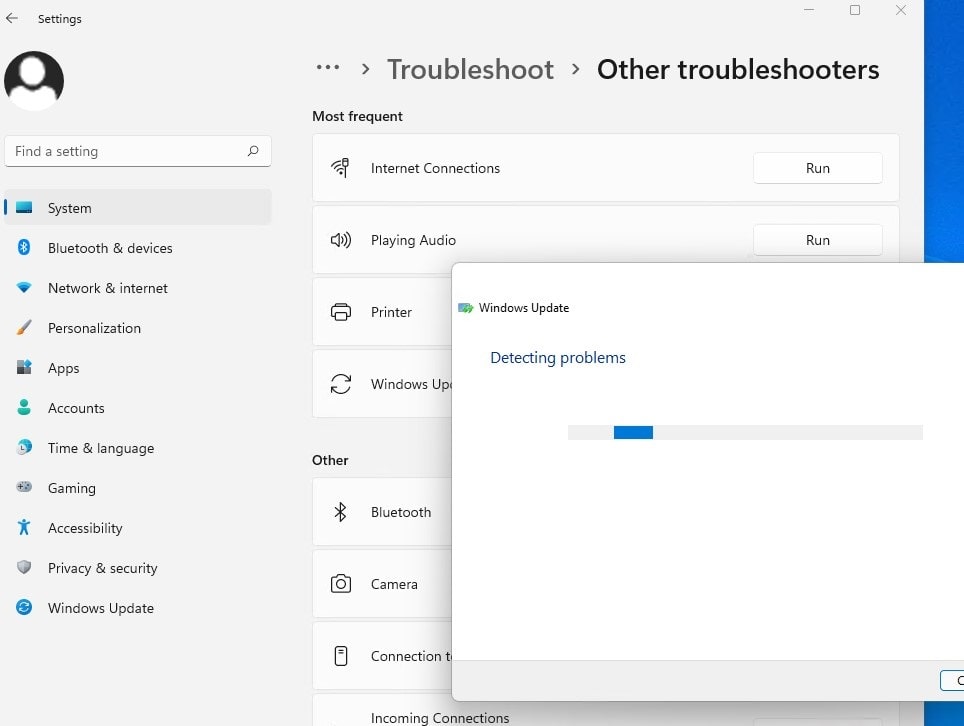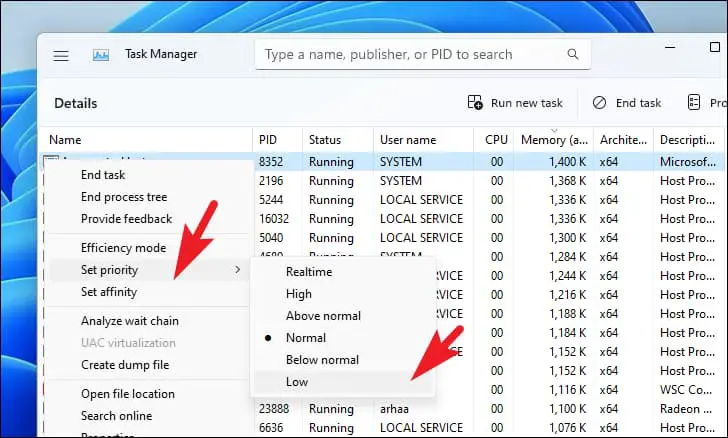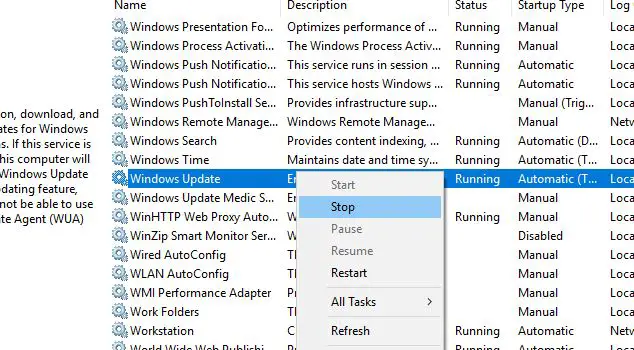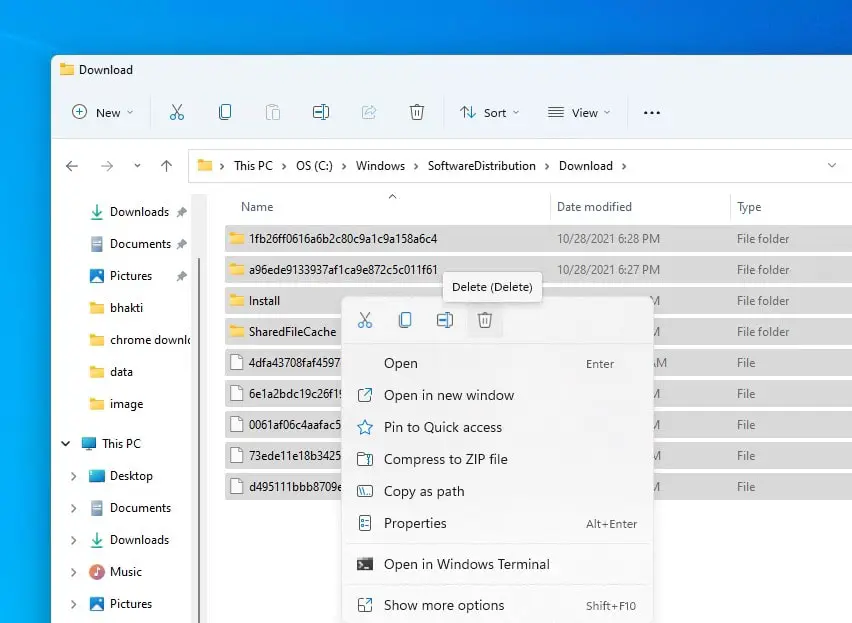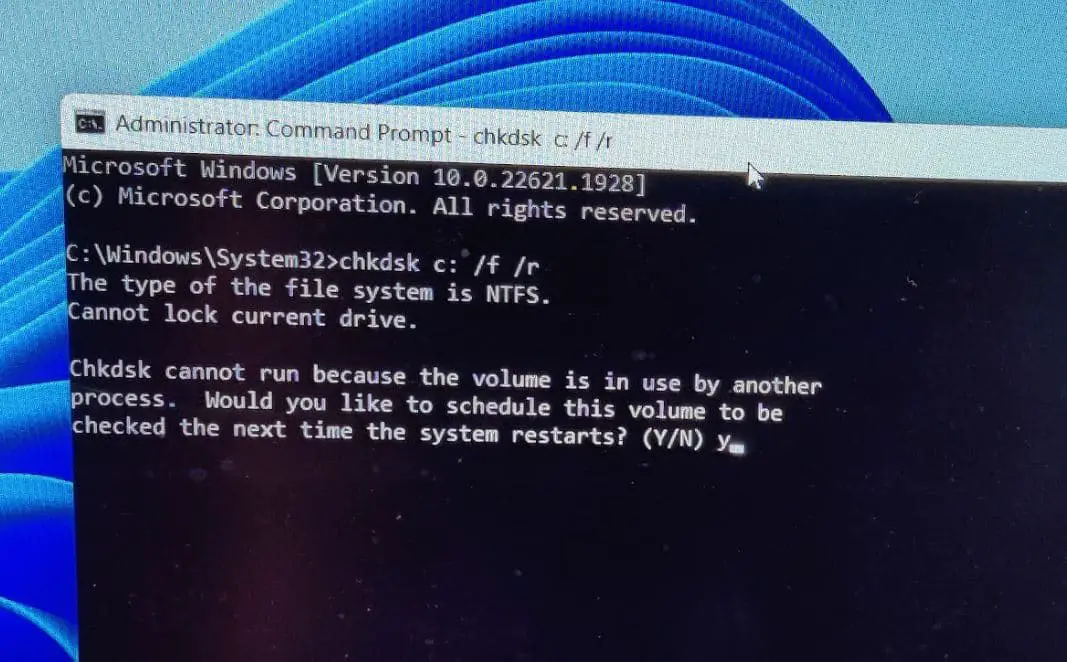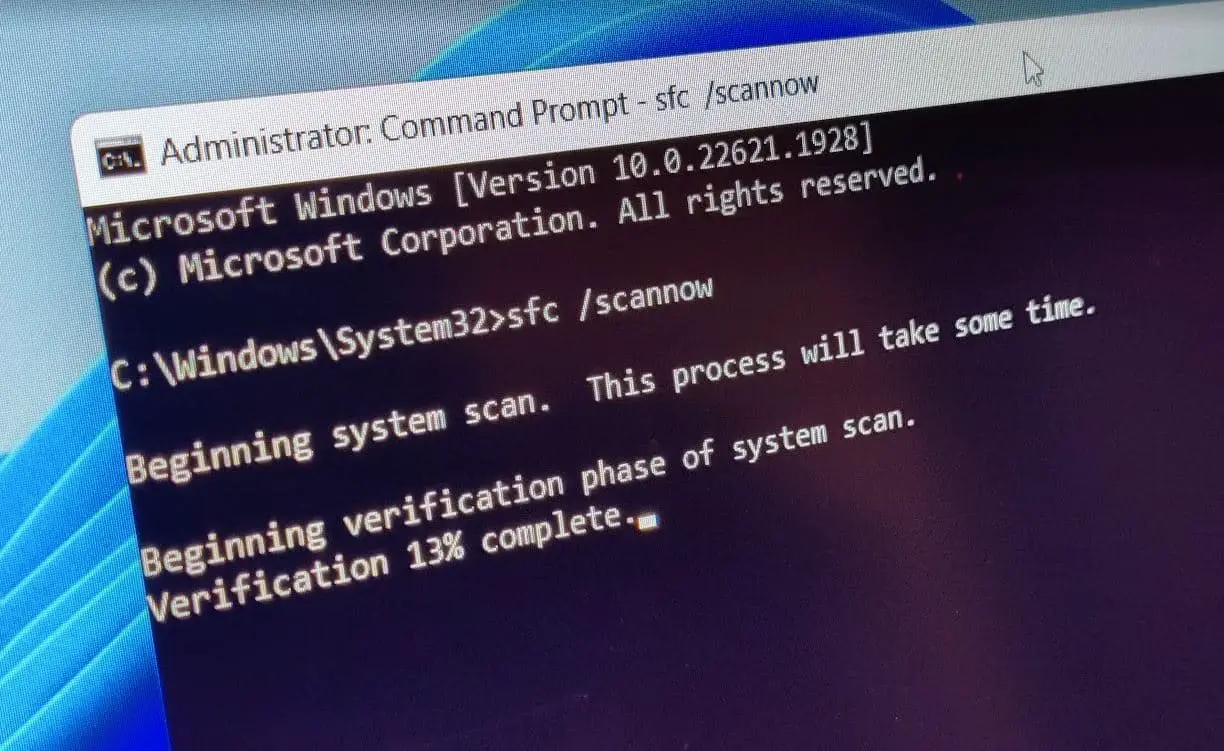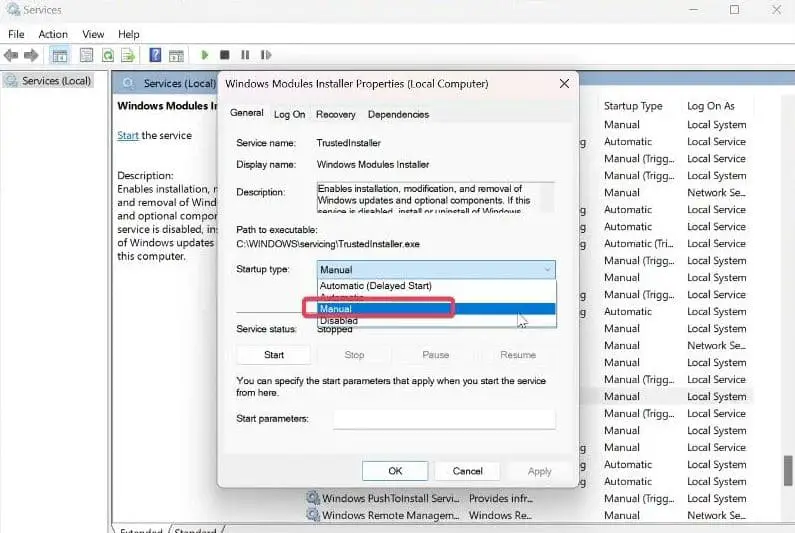Windows Modules Installer worker (TiWorker.exe) is a crucial component on Windows PC responsible for looking for newly available Windows system updates and installing them on your computer. It’s a legitimate system process associated with the Windows Update service ensures that your system is up-to-date and secure. However, at times, Windows 11 Modules Installer Worker can lead to high disk or CPU usage causing performance issues. Several users report computer’s disk usage is unusually high and identified “Windows Modules Installer Worker” as a contributing factor. This article explores the common reason behind Windows Modules Installer Worker High Disk usage and solutions to fix it on Windows 11/10.
What is Windows Modules Installer Worker?
Windows Modules Installer Worker (WMIW) or TiWorker.exe is just a Windows service. That keeps running in the background and searching for new Windows updates. Also, It prepares your computer for installation and checks frequently for new updates.
Its primary objective is to ensure that the computer is equipped with the latest software enhancements, security patches, and performance improvements provided by Microsoft.
Windows Modules Installer Worker high Disk
Usually, the Windows modules installer worker (TiWorker.exe) will terminate all the resources that are necessary for an update once the update is finished. But Sometimes Due to various reasons, these resources will keep on running in the background, Or the process Stuck. This causes High System Resource usage or Windows PC became unresponsive and results from High CPU or 100 % Disk Usage Problems.
Several factors can lead to high disk usage by Windows Modules Installer Worker:
Pending Updates: When there are a large number of updates pending installation, TiWorker.exe may use a significant amount of system resources.
Corrupted Update Files: If update files are corrupted or incomplete, the process may struggle to install them, leading to high disk activity.
Conflict with Antivirus: Certain antivirus programs may conflict with the update process, causing it to consume excessive disk resources.
Insufficient System Resources: If your system has limited RAM or processing power, TiWorker.exe may appear to be using a disproportionate amount of resources.
Stuck Update Process: Occasionally, an update may get stuck or encounter an error, causing the installer worker to continuously attempt installation.
Allow Windows updates to complete
Windows 11 Modules Installer Worker handles the Windows updates process and makes changes to the system’s files and configuration. This involves replacing or adding new files, modifying settings, and sometimes even removing obsolete components. If for some reason this process is interrupted, can lead to conflicts and high disk usage by the Windows Modules Installer Worker.
Let’s first check and make sure there are no more pending updates stuck for downloading or installing which may cause the problem.
- Press Windows key + I to open the settings app
- Go to Windows Update then hit the check for Updates button,
- If new updates are available, allow them to download and install
- This might take some time depending on the number of pending updates.
Once done, restart your computer to apply the changes and check if the disk usage is normal.
Also if you get any Update installation errors or stuck downloading then check this guide to fix Windows update problems.
Run Windows Update Troubleshooter
When there are issues with Windows Updates, the Windows Modules Installer Worker may struggle to complete its tasks. This can lead to it using a significant amount of CPU resources or Disk usage as it attempts to install, modify, or remove updates.
In such situations, running the Windows update Troubleshooter helps address the underlying problems with updates, which in turn can reduce the strain on the CPU caused by the Installer Worker’s attempts to manage those updates.
- Press the Windows key + X and select Settings,
- Go to system then Troubleshoot and click on Other troubleshooters
- Click Run next to Windows Update and follow the on-screen instructions.
- This will help identify and fix common problems with Windows Updates.
Reducing the priority of TiWorker
Reducing the priority of the Windows Modules Installer Worker (TiWorker) process can be a potential solution to mitigate its impact on system resources. Lowering its priority means that it will use fewer CPU resources, which can reduce the strain on your computer.
- Navigate to the Start Menu & search for Task Manager.
- In Task Manager, go to the “Processes” tab.
- Look for TiWorker.exe and right-click on it. Set priority to low. (temporarily you can select the End process tree to stop the TiWorker process)
A warning message will appear informing you that changing process priorities can affect system stability. Click “Change priority” to confirm. Check if it reduces Tiworker.exe high CPU usage.
Tweak SoftwareDistribution folder
Resetting Windows update components clear any underlying issues that may be causing the Modules Installer Worker to consume excessive disk resources. This process essentially provides a clean slate for the update process to function properly, which can help alleviate the high disk usage issue.
This process essentially clears out the old update cache and resets the components responsible for managing updates.
- Press the Windows key + R, type services.msc and click ok
- Locate Windows Update service, right-click on it select stop
- Now press Windows key + E to open File Explorer and navigate C:\Windows\SoftwareDistribution\Download.
- Delete all files and folders inside the Download folder, press Ctrl + A to select all, and hit the Del key.
Now restart the Windows update service, next time you check for Windows updates, your system will recreate the necessary folders and files, hopefully resolving any issues that were causing high disk or CPU usage.
Check Disk Drive Errors
Sometimes disk Drive Errors or bad sectors on hard drive is the reason for High Disk usage on Windows 11. Running a disk check can identify physical problems with the hard drive, such as bad sectors or other hardware-related issues. These can cause high disk usage and other performance problems.
- Simply open the command prompt as administrator then type command chkdsk c: /f /r and hit the enter key.
- When asking for a scheduled disk check on the next restart press Y key and restart Windows.
CHKDSK checks the integrity of the file system on a disk. It looks for structural inconsistencies, cross-linked files, and other issues that can occur over time. It ensures data integrity, recovers data from damaged areas, and can improve overall disk performance.
Regularly checking for disk errors is considered a standard maintenance practice to ensure the health and longevity of your storage device.
Fix Corrupted System Files and Services
Again corrupted system files can indeed cause the Windows Modules Installer Worker to exhibit high CPU or disk usage. When system files are damaged or incomplete, it can impede the update process managed by the Windows module installer. This leads to increased processing demands as the system attempts to rectify or work around these file issues.
You can run System File Checker (SFC) and Deployment Image Service and Management Tool (DISM) to scan and repair issues with the system files and the Windows image.
Press Windows key + S, type cmd and select run as administrator to open Command Prompt with administrative privileges.
Type the command sfc /scannow and press Enter. The SFC will begin scanning for and repairing corrupted files. This process may take some time.
Next, run the DISM command, DISM /Online /Cleanup-Image /RestoreHealth to check for and attempt to repair the Windows image.
SFC scans and repairs corrupted or missing system files in Windows, DISM repairs the Windows image, which includes the operating system files and components.
Once the scanning completes 100%, restart your PC and check if this helps fix the Windows 11 modules installer worker High CPU or Disk usage problem.
Disable Windows Modules Installer Service
Windows 11 Modules Installer Worker high CPU or Disk usage persists after trying the above solutions? You should set Windows Update Service and Windows Modules Installer Worker to manual.
- Press the Windows key + R, type services.msc and hit the enter key.
- Then scroll down and look for Windows Modules installer worker, right-click it, and select Properties
- Change the Startup type To Manual / Disable and Stop the Service next to service status.
Again Repeat this step for the Windows Update service.
Then restart Windows And check There is no more high Disk usage 100 % CPU usage.
Also, Read
- Fix a Boot Configuration Data File is Missing Error 0xc0000034
- Fix This device can’t use a Trusted Platform Module Turn on Bitlocker
- 5 Tips to Fix 100% Disk Usage Problem in Windows 10, 8.1 and 7
- Solved: 100% Disk usage in a new laptop running Windows 10
- Solved: Windows 10 High CPU usage after update!
